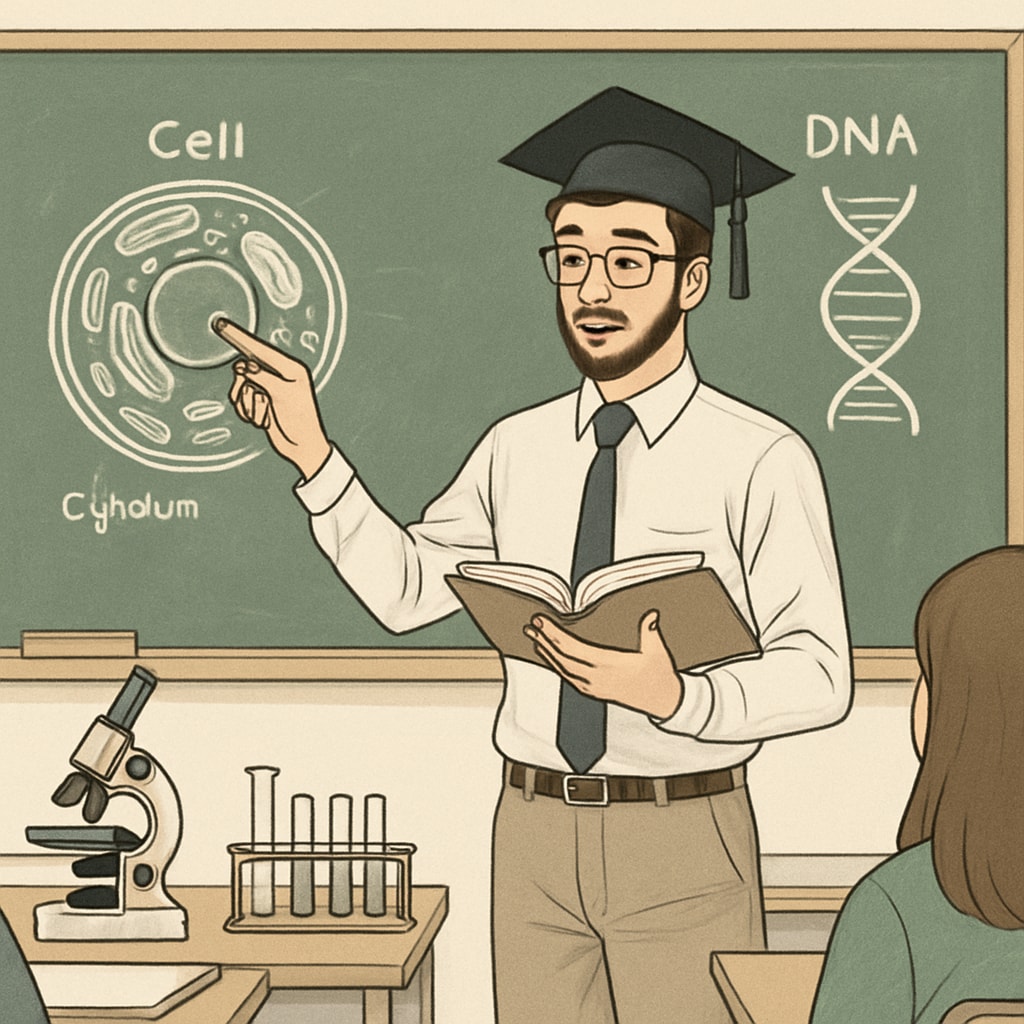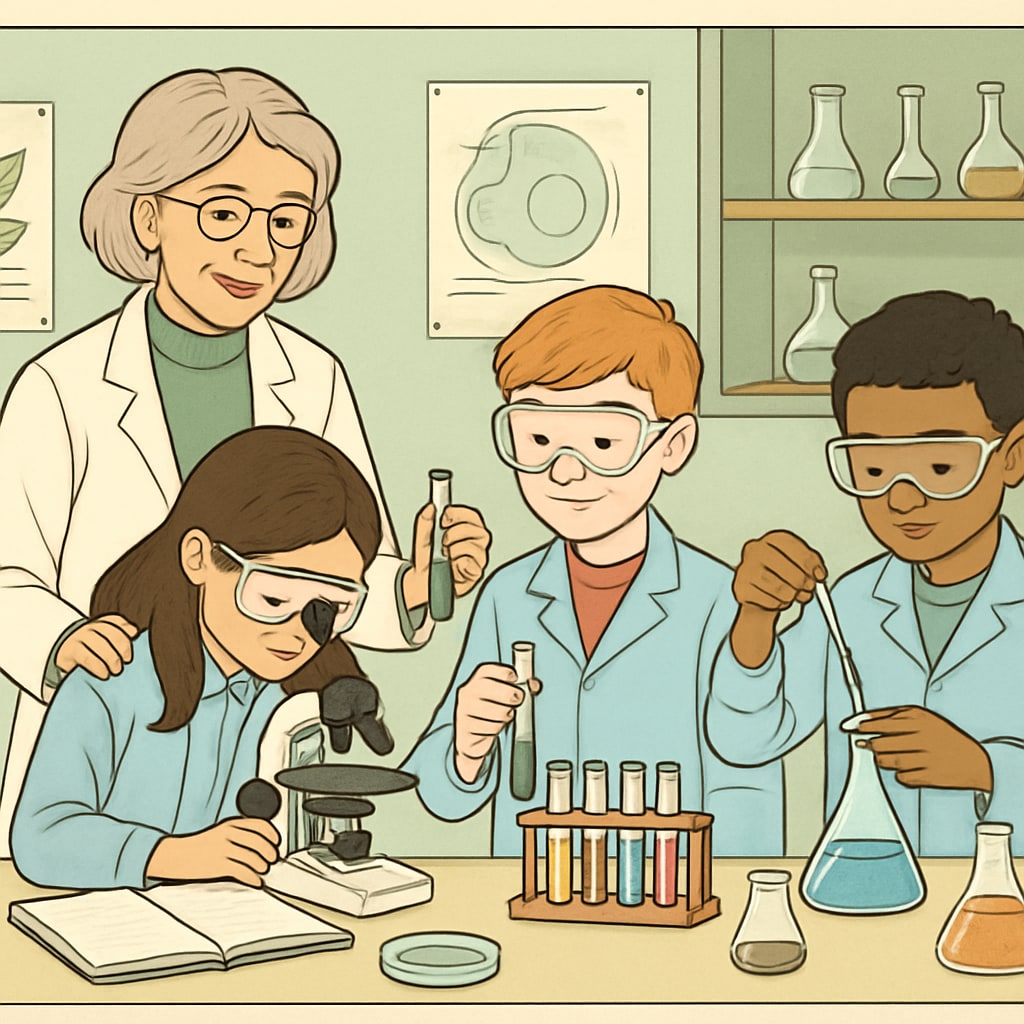For students with a biology background, the idea of pursuing a master’s degree in education may seem like a bold move. However, this academic shift—commonly referred to as a “cross-disciplinary journey”—is not only feasible but also full of potential. By combining the analytical expertise gained in biology with teaching methodologies, individuals can transition smoothly into education. This article explores the challenges, opportunities, and strategies for those intending to shift from biology to education.
Why Transition from Biology to Education?
Biology graduates often possess a wealth of knowledge about the natural world, critical thinking skills, and research expertise. These attributes are valuable in education, especially in teaching STEM (Science, Technology, Engineering, and Mathematics) subjects. Transitioning to education allows biology professionals to share their passion for science, inspire the next generation, and contribute to solving the global shortage of qualified STEM educators.
Moreover, education offers diverse career paths—not just as school teachers but also as curriculum developers, education consultants, and policy advocates. For those passionate about communication and making an impact, an education career can be both fulfilling and meaningful.

Challenges of Switching from Biology to Education
Despite its potential, transitioning from biology to education comes with its own set of challenges:
- Adapting to new methodologies: Biology is a research-heavy discipline, whereas education emphasizes pedagogy, psychology, and communication. Adjusting to these new frameworks requires effort.
- Lack of teaching experience: Many biology graduates may have limited exposure to direct teaching, making classroom management and engagement techniques challenging at first.
- Credential requirements: In many regions, teaching positions require certification or licensure in addition to a master’s degree in education.
However, these challenges are surmountable with the right mindset and preparation. For example, volunteering as a tutor or teaching assistant during your transition can provide hands-on experience and confidence.
Opportunities for Biology Graduates in the Education Field
The intersection of biology and education creates unique opportunities that biology graduates can leverage:
- STEM Education: With a solid foundation in science, biology graduates are well-positioned to teach biology, environmental science, or general science at various academic levels.
- Curriculum Development: Professionals with both biology knowledge and teaching expertise can contribute to creating innovative and engaging STEM curricula.
- Educational Research: Biology graduates with strong research skills can contribute to studies on teaching methods, learning outcomes, and the integration of technology in classrooms.
Furthermore, organizations like Teach for America or other educational nonprofits provide platforms for biology professionals to explore teaching before committing fully to a master’s program.

Practical Tips for a Successful Transition
To ease the shift from biology to education, consider these practical tips:
- Understand why you want to teach: Reflect on your motivations and long-term goals. Is it the joy of sharing knowledge, contributing to society, or the passion for teaching science?
- Pursue relevant certifications: Research the teaching certifications required in your region and enroll in relevant preparatory courses alongside your master’s degree.
- Gain experience: Volunteer at schools, lead workshops, or engage in tutoring to build teaching skills and professional connections.
- Choose the right master’s program: Look for programs that offer a focus on STEM education or biology-specific pedagogy.
- Network with educators: Join education forums, attend conferences, and connect with professionals who have made similar transitions.
By taking these steps, biology graduates can navigate their academic shift with confidence and clarity.
Conclusion: Unlocking New Horizons
The journey from biology to education may seem unfamiliar at first, but it is a pathway filled with opportunities for growth, impact, and personal fulfillment. Armed with a background in biology and a passion for teaching, you can bridge the gap between the laboratory and the classroom. By embracing the challenges and leveraging the opportunities, biology graduates can make meaningful contributions to the education sector while inspiring the next generation of scientists and innovators.
In the end, this cross-disciplinary journey is not just a career shift—it’s a chance to make a lasting impact. As you step into education, remember that your unique blend of scientific expertise and dedication to teaching can shape the future of learning.


